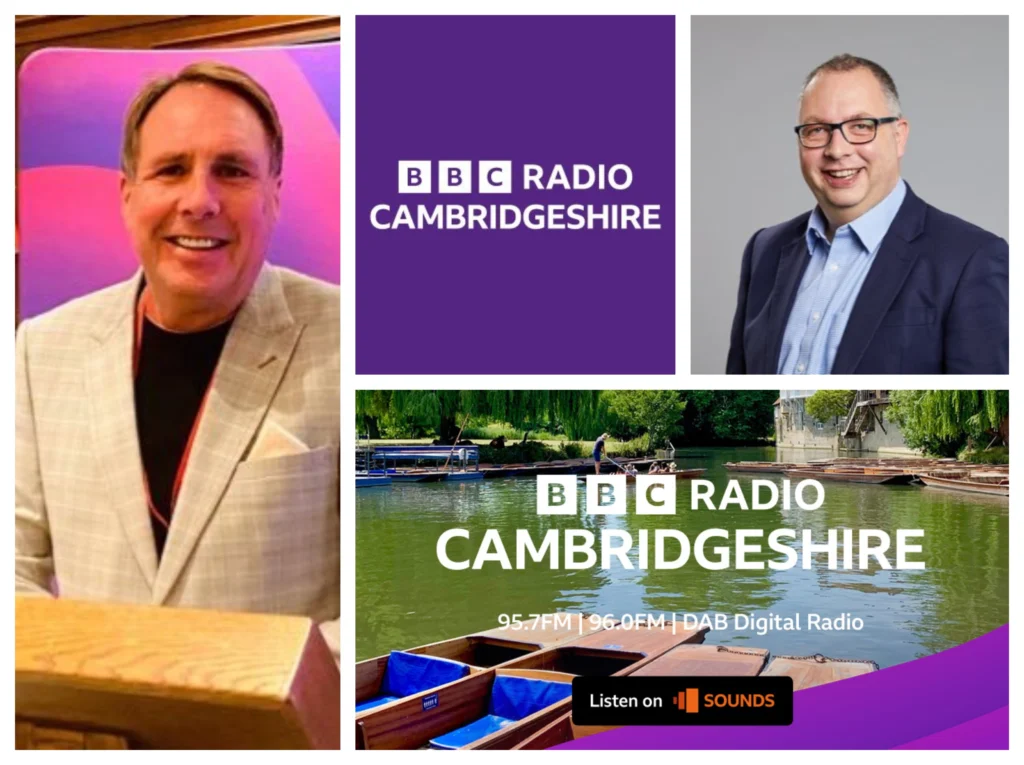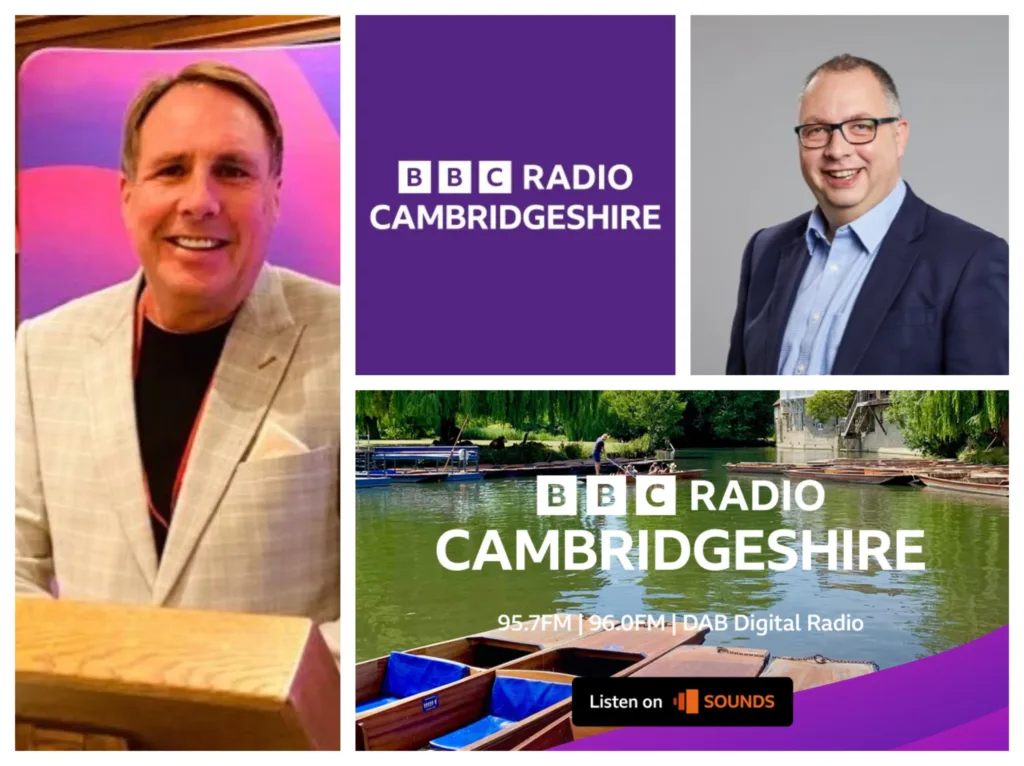Broadcaster Chris Mann came face to face in a bruising on-air encounter with one of the BBC executives responsible for axing his and other local radio programmes.
Jason Horton, once editor of Radio Cambridgeshire but now acting director of BBC England, agreed to the interview on Chris’s afternoon show.
It was an uncomfortable ride for Mr Horton who was repeatedly reminded by Chris of the importance of local radio, and especially its role during the pandemic.
At one stage Chris spoke over responses from Mr Horton reminding his guest ‘there will be job losses, there will be job losses”.
And Chris grilled Mr Horton explaining how cheap it was to run local radio and asking why the cuts proposed by the BBC could not have been made elsewhere.
Mr Horton repeated numerous times how “absolutely” vital local radio was before admitting there were people working at Radio Cambridgeshire “who will not be employed by the BBC” at the end of a consultation period.
The BBC director was at pains to point out that across BBC England, where 2,200 are employed, the reduction in the workforce would only be 48 “in entirety less than two per cent”.
He was pressed by Chris on what the Cambridge studios – which also house the soon to be axed Look East programme for the west – will look like going forward.
The local BBC Look East from Cambridge ends on December 16.
Mr Horton said there were 38 people who work at Look East (Cambridge) but specifically could not say how many of these would lose their jobs.
He did, however, emphasise that the Cambridge tv and radio studios would employ 24 people “across all news output coming from this building”.

Mr Horton confirmed that BBC Radio Cambridgeshire would only broadcast standalone programmes at breakfast and mid-morning, with afternoon content shared across a wider network of local stations.
Local news bulletins would remain throughout the day and there would still be coverage of weekend sport.
He said the BBC “needs to be as relevant as we can be to all our local audiences”.
An increasing number of people now get their news and information from digital services, and the BBC needed to respond to that.
Increasingly to those who get their news and info from digital services
“While our budget remains – give or take – the same, we want to build a new and exciting local service that will work across tv, radio and online,” said Mr Horton.
Chris pressed him on whether BBC Radio Cambridgeshire in the afternoons and early evenings would include Suffolk, Norfolk, Bedfordshire, Hertfordshire, and Buckinghamshire.
Mr Horton said they were still at a consultation stage, but it would be “right to say” BBC Cambs would be joining afternoon programmes across a number of local stations.
He pledged “absolutely” Cambridge content would be included but it would not be as local as it is now or when he ran Radio Cambridgeshire ten or so years ago.
He promised a “rounded service” applicable for all license fee payers.
Mr Horton said: “We have to face facts; audiences are changing the way they get their content from us.”
What was required these days was a “robust and creative digital service alongside”.
He described as a “good question” posed by Chris about why Cambridge was chosen for cutbacks and not Norwich. Mr Horton put it down to the “way we budget across what we do in regional television”.
Mr Horton pledged that “the quality of what we do will increase and we will, serve this side of the region just as much as in the past if not better”.
And there would be a BBC “news index online for Peterborough” and a regional investigations team investigations would be based in Cambridge.















